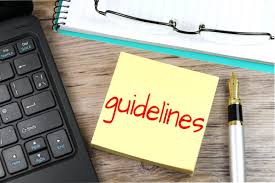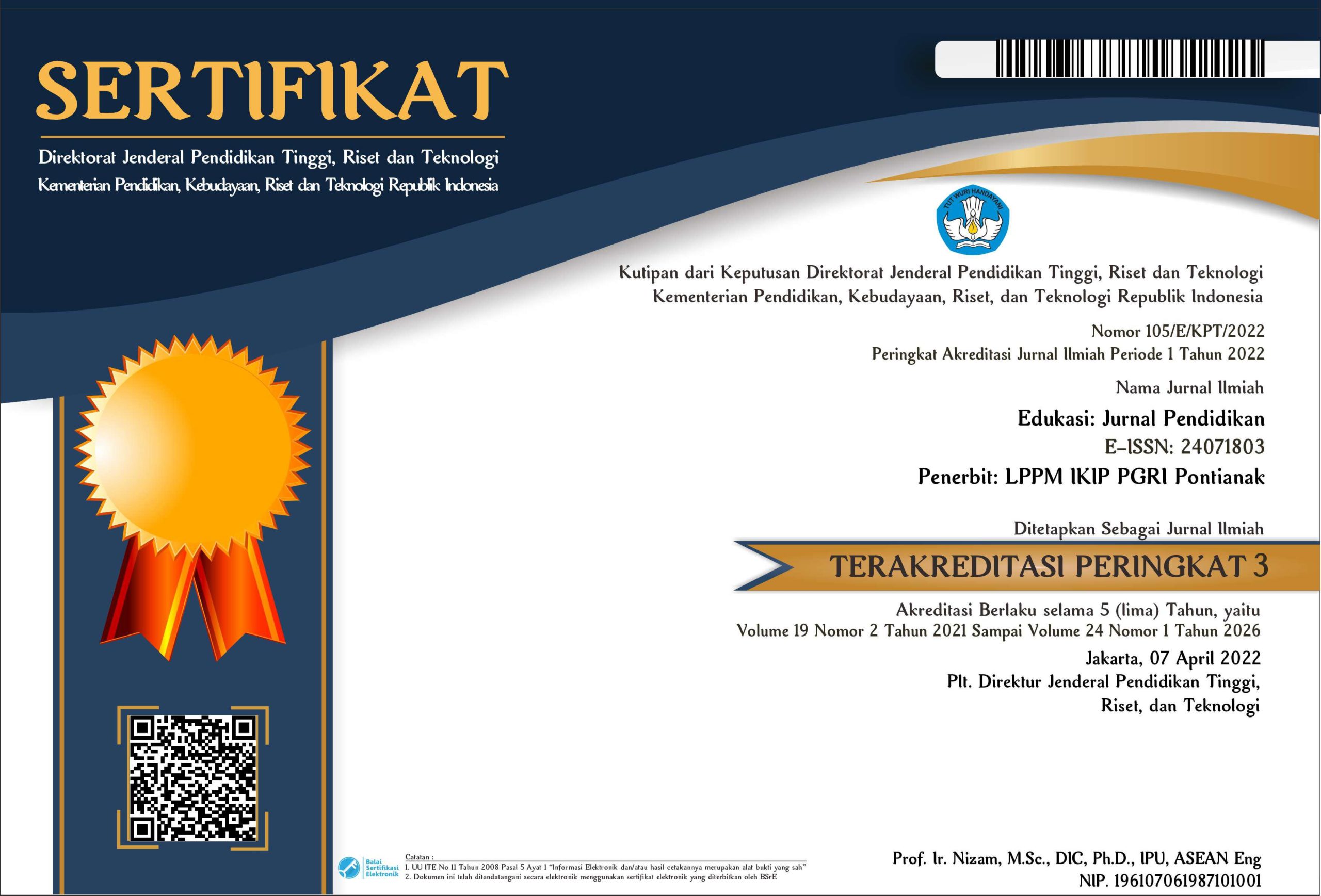Pengaruh Model Probing Prompting terhadap Hasil Belajar Kognitif Siswa pada Materi Pewarisan Sifat
DOI:
https://doi.org/10.31571/edukasi.v16i1.773Keywords:
Probing Prompting, hasil belajar, kognitifAbstract
Tujuan penelitian adalah untuk mengetahui pengaruh model pembelajaran Probing Prompting terhadap hasil belajar kognitif siswa kelas IX SMPN 3 Silat Hilir pada materi Pewarisan Sifat. Metode penelitian adalah eksperimen semu dengan desain penelitian Nonequevalent Control Group. Sampel yang digunakan ada dua kelas dengan jumlah siswa perkelas adalah 24. Alat pengumpul data adalah lembar observasi, soal tes, dan angket. Analisis data dengan anlisis statistik dan persentase. Rata-rata persentase hasil observasi pada kelas eksperimen adalah 95,30% dan dan kelas kontrol 97,16% keduanya masuk dalam kategori “baikâ€. Hasil analisis data diperoleh nilai rata-rata post-test kelas eksperimen 77,50. Sedangkan pada kelas kontrol diperoleh nilai rata-rata post-test sebesar 58,12. Data hasil angket diperoleh persentase sebesar 75% masuk dalam kategori “baikâ€. Setelah dilakukan uji hipotesis diperoleh nilai thitung 2,45 lebih besar dari ttabel 2,01, sehingga Ho ditolak. Jadi penerapan model pembelajaran Probing Prompting berpengaruh signifikan terhadap hasil belajar kognitif siswa pada mata pelajaran IPA Terpadu khususnya materi pewarisan sifat.
Downloads
Downloads
Published
How to Cite
Issue
Section
License
Authors who publish in this journal agree to the following terms:
- Authors retain copyright and grant the journal the right of first publication with the work simultaneously licensed under a Creative Commons Attribution License (CC-BY-NC) that allows others to share the work with an acknowledgment of the work's authorship and initial publication in this journal.
- Authors are able to enter into separate, additional contractual arrangements for the non-exclusive distribution of the journal's published version of the work (e.g., post it to an institutional repository or publish it in a book), with an acknowledgment of its initial publication in this journal.
- Authors are permitted and encouraged to post their work online (e.g., in institutional repositories or on their website) prior to and during the submission process, as it can lead to productive exchanges, as well as earlier and greater citation of published work.

 Download: 546
Download: 546


















